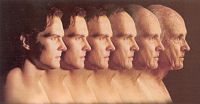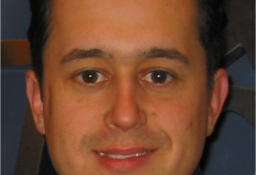This is the time of year when we are regaled with year end reviews—news, movies, musical hits, championships, scandals, and so on. Let’s step away from the usual sort of reviews for a thought experiment.
Imagine some demon sitting on your shoulder and whispering in your ear: “This life—as you lived it this past year—you will have to live once more, and innumerable times more; and there will be nothing new in it, but every pain and every joy and everything unutterably small or great in your life will return to you, all in the same succession and sequence.”
Is this past year, one that you would want repeated again, forever, like an eternal hourglass of existence turned upside down again and again and again? Imagine going through life with chronic stress from work, or dis-ease, anxiety, dissatisfaction, hopelessness, depression. Let’s face it, that’s what most of us put up with in order to make a living to get to a pension and out of this life with some level of comfort.
This idea is sometimes called Nietzsche’s wager, so named for Friedrich Nietzsche, the 19 C. philosopher, who first popularized it. Think of the psychological consequences of eternal recurrence: Each time you choose an action or avoid one, you are making a bet or wager on its consequence for eternity.
How can you not hate this thought experiment?
Imagine being stuck in a job you hate, or don’t like, or feel indifferent to…imagine having to perform the same job duties over and over again…forever…it almost takes your breath away. Imagine that all the choices you make to satisfy others for the sake of duty, obligation, responsibility, or social convention–is your eternal life!
But that was Nietzsche’s objective, to make you hate it. You always have a choice, he said, to live based on hating this idea of eternal recurrence (hoping his theory is wrong), or live in such a way that you love the idea of living forever with the consequences of your choices!
Bronnie Ware is an Australian nurse who spent several years working in palliative care, caring for patients in the last 12 weeks of their lives. She recorded their dying epiphanies, and put her observations into a book. The number one regret as recorded by Ware was expressed as:
“I wish I’d had the courage to live a life true to myself, not the life others expected of me.”
How to find a better career? It’s never too late to start living the life you want to live, doing the work you want to do, creating the results you really want in life. As a job change expert, my job is to help you find that positive eternal groove. You can have a better jobfit, one that matches your natural strengths and motivations to work that will energize you, not drain you. You can have more joy in what you do day in and day out, everyday, always.
Best wishes for a Holiday season and New Year full of eternal recurrences that make your heart sing!












